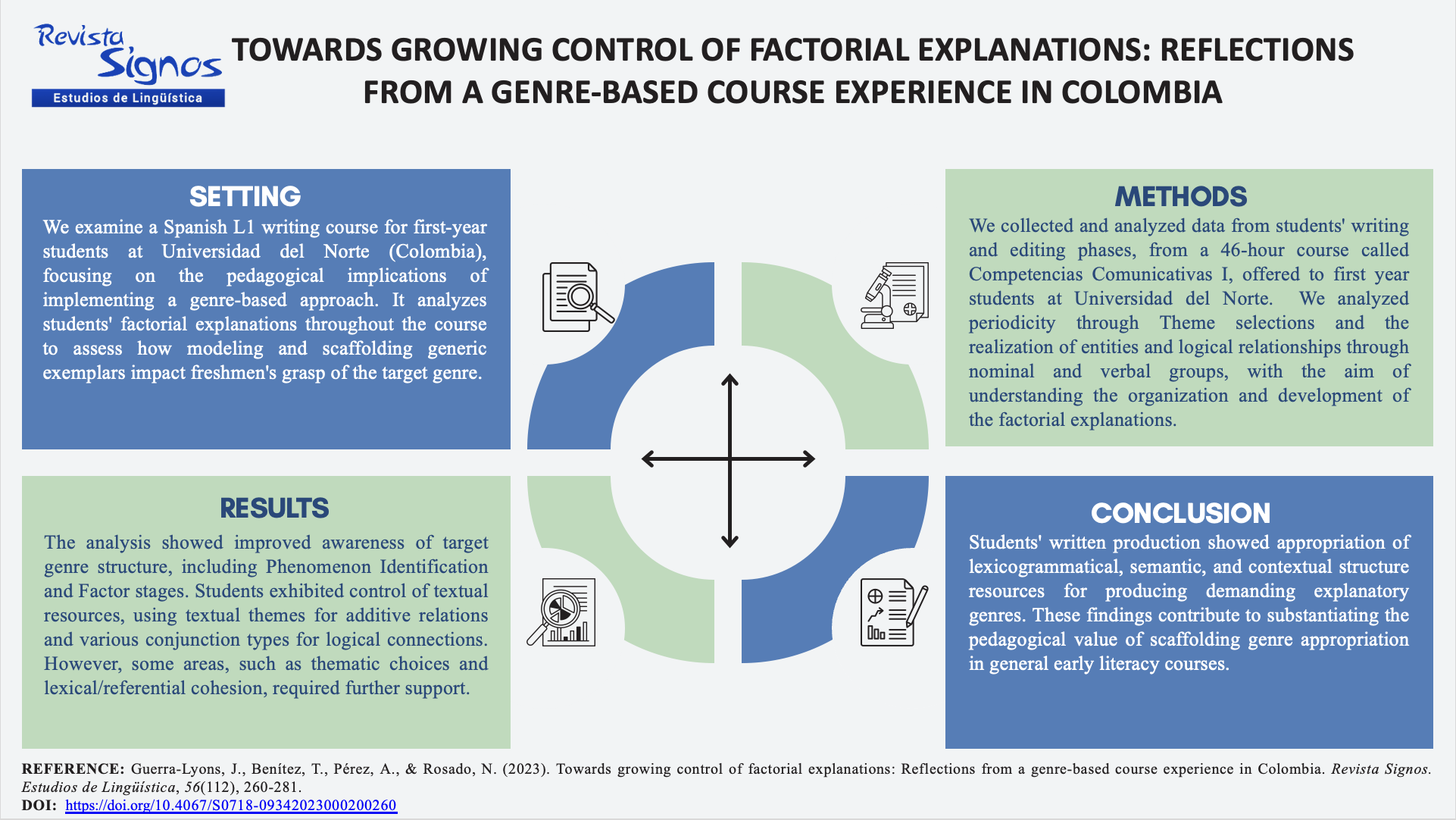Towards growing control of factorial explanations: Reflections from a genre-based course experience in Colombia.
Keywords:
academic literacy, factorial explanations, Genre-based Pedagogy, Systemic Functional LinguisticsAbstract
This paper explores qualitative changes in freshmen’s writing of factorial explanations throughout a genre-based syllabus implemented within a year 1 Spanish L1 writing course offered at a Colombian university. The aim was to assess the extent to which explicit modelling and scaffolded writing of generic exemplars resulted in freshmen’s appropriation of the generic features of the target genre. Analysis of independently produced instances showed students’ appropriation of the contextual structure of factorial explanations as well as adequate control of textual and ideational resources for making meaning across generic stages and phases. We discuss findings in connection with the contribution of Genre Based Literacy pedagogy in the development of reading and writing skills in initial literacy education at the university level.

Downloads
Published
How to Cite
Issue
Section
License
Copyright (c) 2023 Revista Signos. Estudios de Lingüística

This work is licensed under a Creative Commons Attribution 4.0 International License.
Copyright agreement:
Authors who have a manuscript accepted for publication in this journal agree to the following terms:
Authors will retain their copyright and grant the journal the right of first publication of their work by means of this copyright agreement document, which is subject to the Creative Commons Acknowledgment License that allows third parties to share the work provided that its author and first publication in this journal are indicated.
Authors may adopt other non-exclusive license agreements for distribution of the published version of the work (e.g., depositing it in an institutional repository or publishing it in a monographic volume) as long as the initial publication in this journal is indicated.
Authors are allowed and encouraged to disseminate their work via the internet (e.g., in institutional publications or on their website) before and during the submission process, which can lead to interesting exchanges and increase citations of the published work (read more here).


